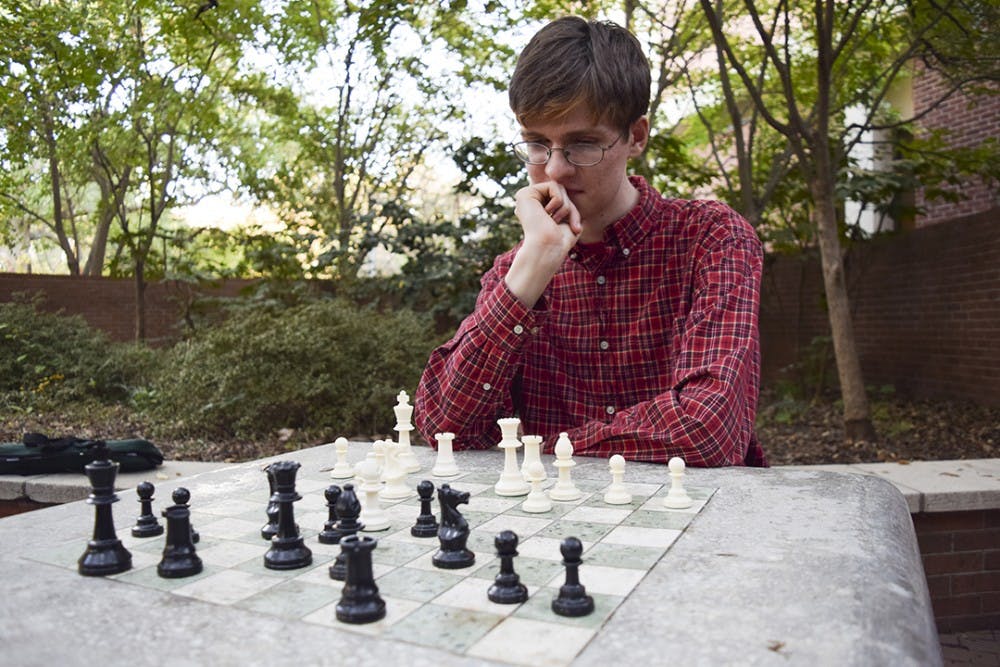Before Benjamin Caiello won the South Carolina Chess Association’s 2016 championship event held this October in Columbia, he was an eight-year-old inspired by the fast chess featured in the 1993 movie "Searching for Bobby Fischer."
Now a second-year biochemistry student, the South Carolina state champion for 2016 is a member of USC’s Gamecock Chess Club. Rade Musulin, a fourth-year mathematics Ph.D. student and vice president of the Gamecock Chess and Go Club, described the group as a “free play club.”
“Ben’s our top level right now, he’s what we would call an expert, so we’ve got all levels,” Musulin explained.
Caiello was taught to play chess by his father and older brother, with whom he competed throughout his childhood. As he improved, he began to use books and Chess.com to hone his strategies.
"It's really based on calculation and how well you can see ahead. If you can clearly see that the move is going to be good for you, then you go for it. Sometimes though, it’s not so clear, and you just have to weigh the risks,” Caiello said. “Also, even visualizing the board is useful spatially because I’m in biochemistry. I’m actually taking organic chemistry right now, and some of that's like 3-D structures. It’s useful to be able to, just as I imagine pieces on a chess board, imagine them moving.”
The state competition was played across a span of three days. The tournament ended after a tiebreaker between Caiello and opponent Elijah Neumann, who both had scored 3 out of 5 possible points.
Statistics professor Edsel Peña, who won top senior in the competition, acts as the Gamecock chess club’s adviser.
"Chess, in some sense, is kind of a microcosm of life. It helps in decision-making, for instance, financially, or in other decisions. It makes you think ahead,” Peña said. “It teaches you discipline, it teaches you how to manage your time. It teaches you how to manage your resources.”
The Gamecock Chess Club will continue to compete in tournaments such as the Columbia Open in November and the Pan-American Collegiate Chess Championships in December, where members like Musulin and Caiello will compete with students from universities and chess clubs across the nation.
“Anyone can play chess,” Caiello said. “It takes analytical reasoning and thinking ahead.”

